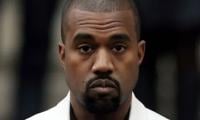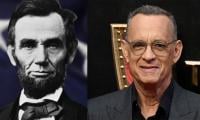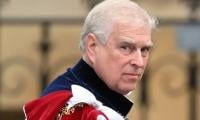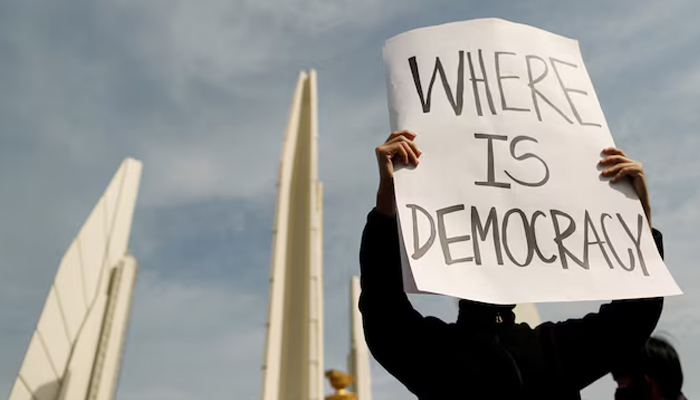Democracy rhetoric
Democracy is a human right that serves as foundation for building a prosperous and peaceful society. However, it’s important to recognise democracy is not a one-size-fits-all concept. It varies across cultures, and every culture devises its own model in accordance with its unique circumstances and ground realities. The uniqueness and diversity of models are the essence of democracy. Therefore, no one has the right to propagate the superiority of one model over another.
Unfortunately, inventors of liberal democracy refused to recognise diversity and insist on superiority of Western liberal democracy. The theory of the End of History was constructed to promote the notion that liberal ideology and democracy had acquired universality. The theory argues that humanity has reached the ultimate level of maturity, and human ideological evolution has been completed. In other words, it was an attempt to snatch the human power of imagination, innovation, charting new ways of life and to create uniformity and negate other models of democracies. Moreover, the West tagged its economic success to the liberal democracy, which is not true. In reality, they developed by colonising the world, looting their resources and enslaving humans.
The analysis of liberal democracy model shows it may be suitable for the West, but does not cater to the needs of other countries. It has many inbuilt flaws, which weaken the claim of superiority of Western brand democracy. It thrives on differences, not consensus. It starts by dividing nations on the basis of so-called political preferences and ideological differences, with the prime objective of grabbing power. The division affects the country on three fronts. It results in cult formation and blind following. The cult-based following does not allow anyone to differ from the leadership.
Divisions fueled by interests can lead to social divides and conflicts. For example, in US, the social divide on the political and ideological basis is so deep that Democrats (47 percent) do not want their children to marry in republican families, and Republicans (35 percent) do not want their children to marry in democratic families (PEW survey). The Institute of Family Studies highlighted that inter-political ideology marriages are decreasing.
Social divide and conflict can lead to anarchy, ethnic fights, etc., which ultimately can result in ethnic cleansing. Michael Mann’s book Dark Side of Democracy: Explaining Ethnic Cleansing can help us further understand the phenomena.
With time, democracy has become a game of a throne. People with money can buy anything, including opinions or ideology. The use of money has limited the role of common people, as they cannot think of being part of the game except to vote. They are only used as pawns to secure interests of the king. Harvard Political Review highlighted money plays a prominent role in deciding the election outcome. For example, in 2020 elections in US, $14.4 billion were spent by political parties, donors and candidates. The share of Presidential candidates was $6.6 billion.
Third, success of one party is attached to failure of other parties. Therefore, the opposition parties keep maligning or trying to topple the government. The ultimate victims of this game are the State and common people.
Despite these serious flaws, Western countries still insist on superiority of their brand of democracy. This belief led to the launch of global campaign to introduce Western democracy. The US, the leader of the West, is leading the campaign. In 1983, the US institutionalised the efforts by creating a dedicated body, the National Endowment for Democracy (NED).
The NED operates by building nexus. It has constructed two nexuses to achieve its objectives. First, it built a nexus with other funding agencies like DFID (recently replaced by Foreign, Commonwealth & Development Office, FCDO), IDRC, GIZ, NORAD, Swedish and EU agencies. They extend funding for the Western branch of democracy, human rights, electoral reforms, etc.
Second, the NED built a nexus with government and military intelligence agencies. Therefore, many experts believe NED operates overtly to facilitate regime change.
Since its launch in 1983, the NED has actively engaged think tanks, media, academia and other elements in the name of human rights, anti-corruption, free elections, etc. The NED also funds pro-liberal democracy political activists and promotes pro-US or West elements. In this way, a pro-West alliance is built, which helps it interfere with other countries’ internal affairs and elections.
Besides, the West has weaponised the democracy. Whenever they feel that a country is not following their dictation or going against their economic interest, they unleash a campaign for democracy followed by human rights, etc. Many countries are victim of this strategy, including Libya, Syria, Iraq, Venezuela, China, Mexico, Pakistan, Iran, etc. They either attack and destroy the country or introduce economic and trade sanctions. The sanctions are a way to destroy the country; it is like slow poisoning. The sanctions dry up investment and economic opportunities and throw the country into financial and economic crises.
On the other hand, they construct the colour revolutions for regime change. Organisations like NED, FCDO, IDRC, GIZ, NORAD, Swedish and EU agencies act as cheerleaders. They provide funding to opposition parties or preferred journalists, think tanks and media to build a bad image of the target. The invention of cyberspace and social media has further facilitated their work. It has become more convenient to spread fake news or disinformation about the governments and countries. Social media has become the main instrument of colour revolutions or disturbance.
The prominent examples are colour revolution of Ukraine, Arab Spring and widespread protests in Egypt. Now, they are supporting anti-government elements in Iran.
Regrettably, the NED, the US government, and Western countries often turn a blind eye when they prefer a dictator to be in power. They show little concern if the preferred dictator has toppled the elected and pro-people government. Numerous examples can be found to support this claim.
The most recent example is Egypt, where a serving army general toppled the government and put the elected president behind bars. Algeria is another example. In the early 1990s, the military overthrew an Islamic government, and the West supported the dictator instead of democracy. It led to a civil war in Algeria, which consumed hundreds of thousands of lives.
Based on above discussion, we can infer two conclusions. NED-led democratic movements hurt countries and caused suffering for the people. Western democracy has inbuilt flaws that hurt society. Therefore, the West must come out of its self-assumed superiority and let the countries and people decide what type of democracy they want.
-
 Meghan Markle’s Family Shares Important News Amid Estrangement
Meghan Markle’s Family Shares Important News Amid Estrangement -
 BAFTA, BBC, And Tourette’s Advocate John Davidson Issue Formal Statements For His Onstage Slur
BAFTA, BBC, And Tourette’s Advocate John Davidson Issue Formal Statements For His Onstage Slur -
 Kanye West's Malibu Beachfront Mansion Enters Controversy Again As Ex-employee Seeks $1M In Alleged Unpaid Wages
Kanye West's Malibu Beachfront Mansion Enters Controversy Again As Ex-employee Seeks $1M In Alleged Unpaid Wages -
 Tom Hanks To Lead Experimental Biopic About Distant Relative Abraham Lincoln
Tom Hanks To Lead Experimental Biopic About Distant Relative Abraham Lincoln -
 'CIA' Starring Tom Ellis Promises Fresh Take Beyond FBI Franchise
'CIA' Starring Tom Ellis Promises Fresh Take Beyond FBI Franchise -
 Congressman Tony Gonzales Faces Resignation Calls Amid Investigation
Congressman Tony Gonzales Faces Resignation Calls Amid Investigation -
 Royal Family Not Allowed To Play THIS Fun Game: ‘It Gets Too Vicious’
Royal Family Not Allowed To Play THIS Fun Game: ‘It Gets Too Vicious’ -
 Heidi Klum Exposes Harsh Modeling Rule She Faced While Expecting
Heidi Klum Exposes Harsh Modeling Rule She Faced While Expecting -
 US Women’s Hockey Team Skips State Of The Union After Gold Medal Win
US Women’s Hockey Team Skips State Of The Union After Gold Medal Win -
 Toronto Weather Forecast: Snow Storm Advisory Lifted After Icy Conditions
Toronto Weather Forecast: Snow Storm Advisory Lifted After Icy Conditions -
 How ‘deafness’ In Andrew Scandal Has Changed Monarchy ‘forever’
How ‘deafness’ In Andrew Scandal Has Changed Monarchy ‘forever’ -
 Gisele Bundchen Drops Postpartum Workout Secret She Calls A 'game Changer'
Gisele Bundchen Drops Postpartum Workout Secret She Calls A 'game Changer' -
 1 In 5 Teens Exposed To Unwanted Sexual Content On Instagram, Report Finds
1 In 5 Teens Exposed To Unwanted Sexual Content On Instagram, Report Finds -
 US Judge Aileen Cannon Issues Permanent Order In Trump Documents Case
US Judge Aileen Cannon Issues Permanent Order In Trump Documents Case -
 King Charles, Royals Are Not ‘bright’ Enough To Live In Mansions
King Charles, Royals Are Not ‘bright’ Enough To Live In Mansions -
 'Final Throw Of The Dice': Paramount Submits Highest Bid Offer To Warner Bros. In Last Round
'Final Throw Of The Dice': Paramount Submits Highest Bid Offer To Warner Bros. In Last Round




